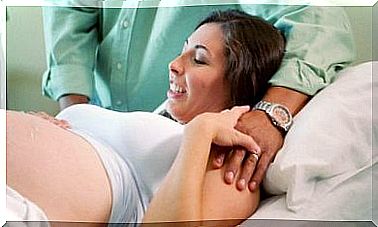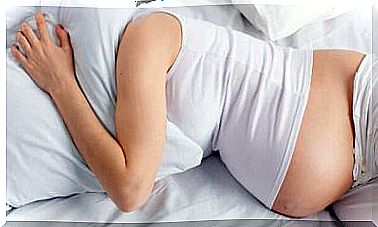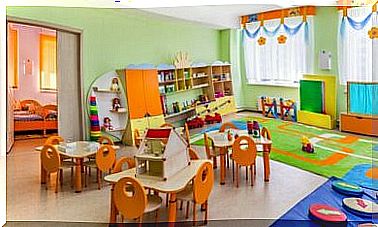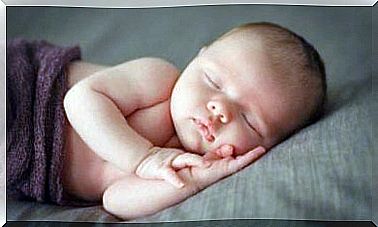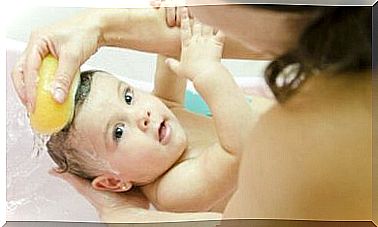Pros And Cons Of Cloth Diapers
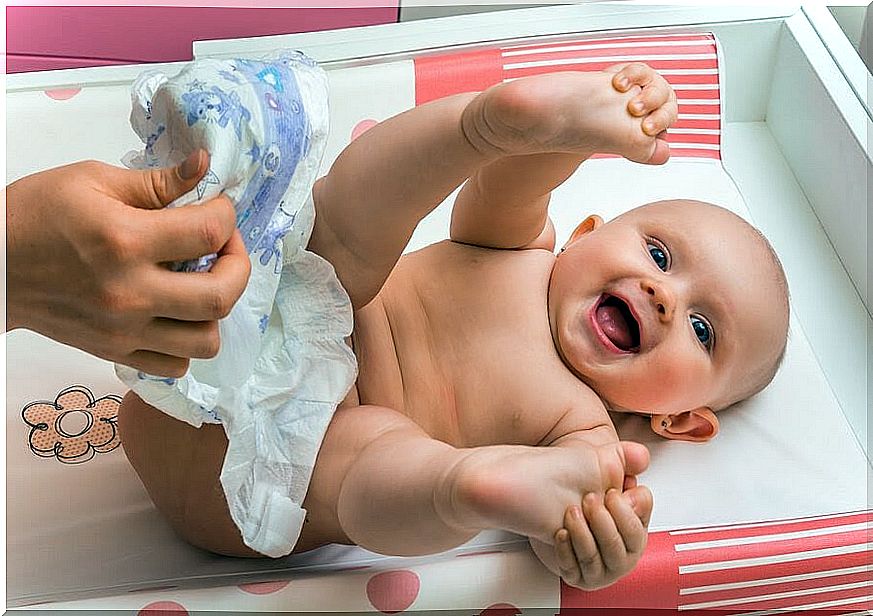
Disposable diapers have been the first choice for parents in recent decades. However, there is another cheaper alternative that is more environmentally friendly. We are referring to cloth diapers, which our mothers and grandmothers once used, and are now in a new edition for us.
Read on and discover the different types of cloth diapers available, along with their pros and cons.
Types of cloth diapers
When it comes to size, there is virtually no difference between cloth diapers and disposable diapers. Both types are classified according to the child’s age and weight. However, we can also classify cloth diapers as follows:
- Flannel diapers : These are extremely soft and usually come with buttons or another device to fasten them together.
- Fold diapers and prefolds : These consist of several layers, which improves their absorption capacity. They are slightly thicker than the others.
- Shaped diapers : The former is simply a piece of cloth that is attached with clips on the back. The latter are similar but have a more curved shape to adapt better to the child’s body.
- Adjustable diapers: its shape is very similar to that of disposable diapers. It has an elastic waist and a Velcro strap.
- Pocket diapers: this curious model contains an opening, or pocket, for stuffing absorbent inserts. Its main advantage is that it dries faster than others and that you can adjust how absorbent you want the diaper to be, for example overnight.
All these models have one thing in common: they have an outer protection, or a diaper pants, whose function is to prevent the dirt from being transferred to the clothes. These, like regular diapers, also come in different sizes and with different types of closures.
Benefits
The first benefit is the most important of all when it comes to diapers: the cost. Fabric diapers are more economical than disposable diapers, the price of which has increased significantly in recent years.
Of course, you have to pay more initially to buy them. But since you can use them over and over again, they become much cheaper in the long run. You will go from buying hundreds of disposable diapers to only about 30 or 40 cloth diapers for all the time your little one needs them.
Recently, a large market for designed cloth diapers at surprisingly high prices has also begun to be sold. These do not have the same economic benefits, but all the other benefits that cloth diapers offer.
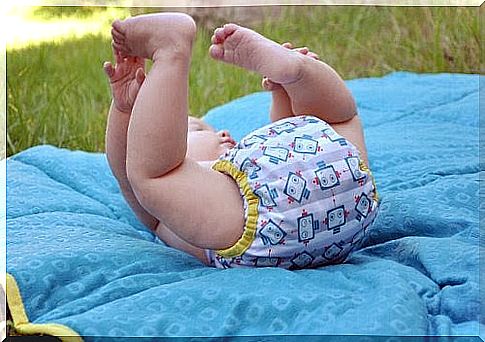
In addition, cloth diapers are very beneficial in preventing and alleviating skin irritations in infants, especially in newborns. One reason for this is that they contain fewer chemicals. They also cause minor abrasions because they are softer. And also, because they absorb less, they are changed more often during the day and therefore keep down the growth of bacteria and fungi that can cause irritation.
There is also another benefit that is not directly related to your child’s health. You will make a major contribution to the well-being of the environment. Experts estimate that a baby can use around a thousand kg of non-degradable material in the form of diapers until he or she has learned to use the potty fully.
Cons
The biggest disadvantage of cloth diapers is that we logically have to wash them regularly. But contrary to what you might think, just a little water and neutral detergent are enough to make them useful again. It is not necessary to use any special detergent, especially chlorine or other bleaches.
But here we have a controversial topic. In a world where water resources are increasingly scarce, should we use them to wash diapers? This issue is being discussed more and more in the diaper debate – it does not make it any easier that it is often manufacturers of disposable diapers who address this aspect.
In addition, cloth diapers that do not come with a sufficiently absorbent material will leak moisture and feces. As a result, almost all of the child’s clothes need to be changed, and he or she will probably need to be bathed.
Cloth diapers vs. disposable diapers
Disposable diapers are very practical and absorb more than cloth diapers. So even though they are expensive, it is also true that they stay dry longer.
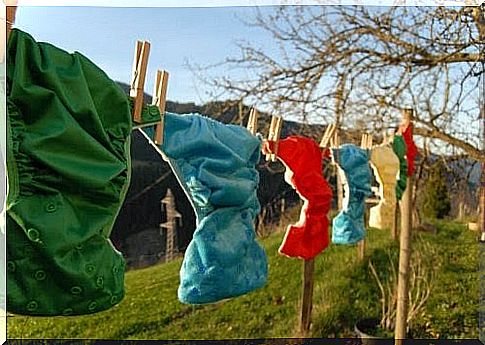
The main drawback of disposable diapers must be their impact on the environment, as we mentioned earlier. This is evident from their manufacturing process, where many natural resources are consumed and for waste management afterwards.
It is currently almost impossible to recycle them, although there are some pilot programs to do so, and their degradation is extremely slow.
In short, it’s all about a matter of preferences, personal circumstances and finances. All parents will choose the option that he or she considers best. There are also many who choose to use a combination of cloth diapers and disposable diapers that suit their lifestyle.
With cloth diapers, we can safely save money and take care of the environment. But at the same time we have to put a little more time and effort when we keep the diapers clean and change the baby more often.
